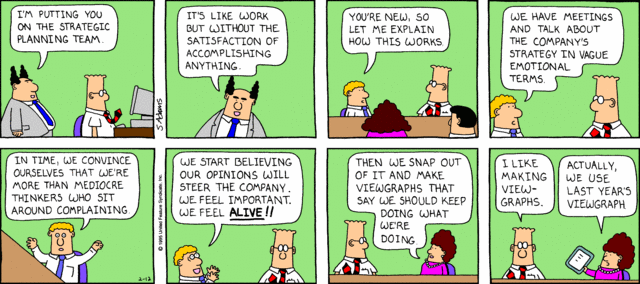Knowledge Transfer
There is a large contingent of 45-65 year old knowledge workers in America without work in this economy, or without meaningful full time gainful employment. Many were downsized as for profit organizations looked for ways to meet quarterly earnings and funding for non-profits continues to shrink (as it has since George W. Bush's first term). We wouldn't claim age discrimination because the unemployment rate for 25-34 year olds is higher but surely you know someone who heard the "we're going in a different direction," or "we're outsourcing your department." Still the fact older workers have a much harder time finding a job simply because they cost more than fresh college graduates.
I know in part because I was one, but also just from the number of professionals with solid experience and tremendous expertise who are trying to to find meaningful work. Several I know who were downsized are fortunate enough to be hired back as subcontractors by their former employers. The organizational and societal loss occurs because of a decrease in the knowledge transfer between the two age groups. Overall as a country we are not nearly as competent in organizational learning as we need to be.
This has to flow both ways though, because the ideas, visions and in particular technology friendly paradigm of the emerging demographic needs to be impressed upon those of us with more practical work experience while the expertise, understanding, patience and in many cases, work ethic (not ethics) needs to flow down to those with more theory than practice. Which leads me to today's video that while discussing the education change paradigm, really applies to all organizations.
I've loved Sir Ken Robinson's work since I first saw him on Ted Talks. I make it a point to watch at least one Ted Talk a week, and often more. When PhilB commented on my Killing Creativity post he recommended the video below. Phil is in France by the way as the 7 degrees of separation globally works its way down to 2.3 of what I'd prefer to call degrees of connectivity and collaboration. The logic and reality of this shortened talk by Robinson is undeniable.
I know in part because I was one, but also just from the number of professionals with solid experience and tremendous expertise who are trying to to find meaningful work. Several I know who were downsized are fortunate enough to be hired back as subcontractors by their former employers. The organizational and societal loss occurs because of a decrease in the knowledge transfer between the two age groups. Overall as a country we are not nearly as competent in organizational learning as we need to be.
This has to flow both ways though, because the ideas, visions and in particular technology friendly paradigm of the emerging demographic needs to be impressed upon those of us with more practical work experience while the expertise, understanding, patience and in many cases, work ethic (not ethics) needs to flow down to those with more theory than practice. Which leads me to today's video that while discussing the education change paradigm, really applies to all organizations.
I've loved Sir Ken Robinson's work since I first saw him on Ted Talks. I make it a point to watch at least one Ted Talk a week, and often more. When PhilB commented on my Killing Creativity post he recommended the video below. Phil is in France by the way as the 7 degrees of separation globally works its way down to 2.3 of what I'd prefer to call degrees of connectivity and collaboration. The logic and reality of this shortened talk by Robinson is undeniable.
So if you're leading an organization still trying to make decisions on team members you need to at least consider the value of blended diversity (in all forms) while encouraging knowledge transfer. And if you're a downsized baby boomer trying to find meaningful work, contact me. The opportunities to network among your peers in the region to continue expanding the competencies, relationships and brain trust is both a mission and vision for me. Thank you PhilB for sharing and increasing my worldview.





Comments
Post a Comment
Thank you for sharing your worldview.